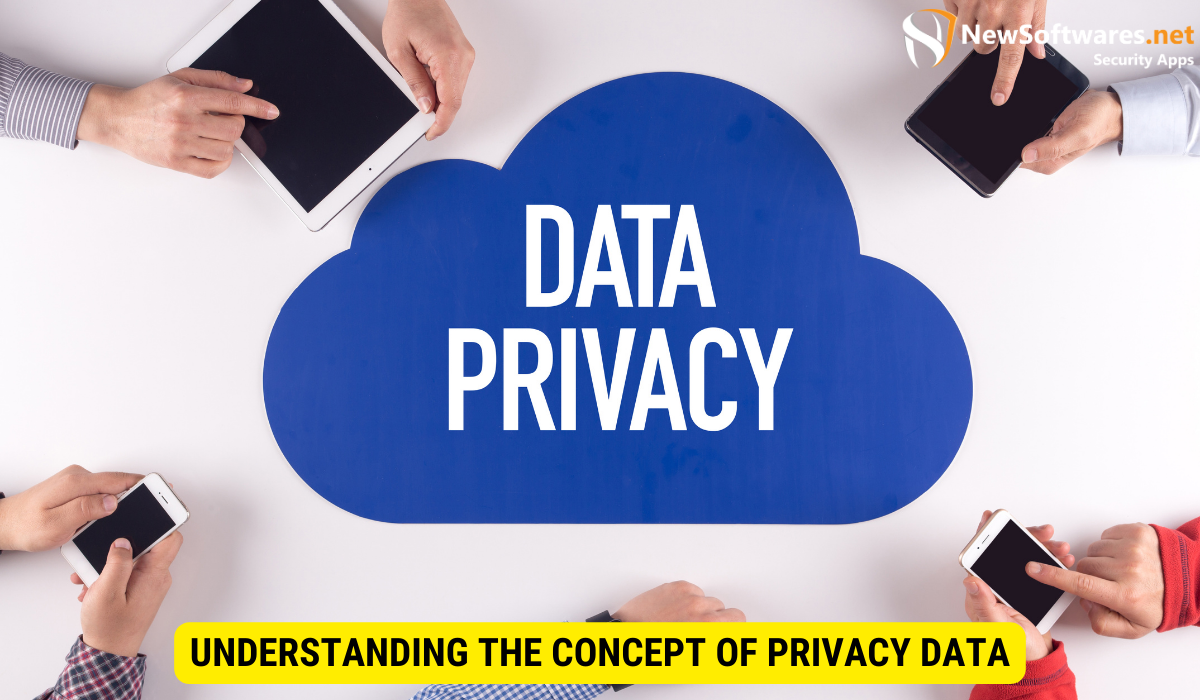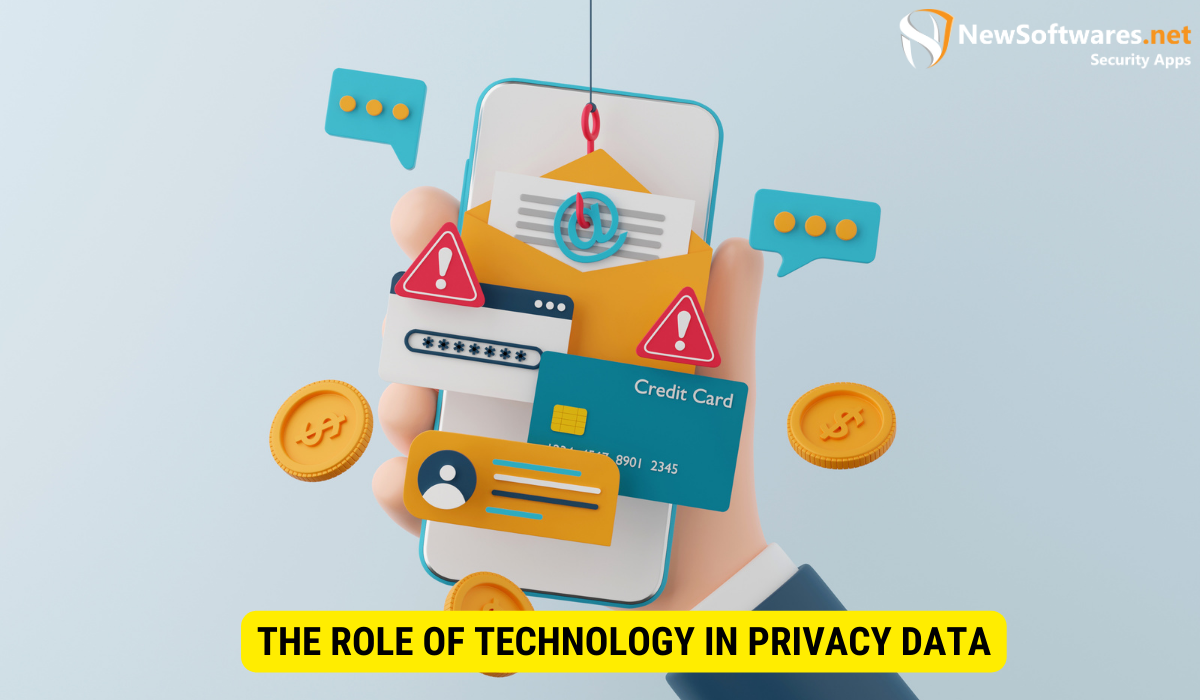Privacy data ownership is a multifaceted issue involving legal, ethical, and technological aspects. It encompasses the rights and responsibilities of both individuals and organizations in handling personally identifiable information.
Privacy data has become a subject of increasing concern in our digital age. With the vast amount of personal information being collected and stored, it is crucial to understand who owns this data and its implications for individuals and organizations. Together, we will delve into the concept of privacy data, explore the different aspects of ownership, discuss the legal and ethical considerations, and examine technology’s role in protecting privacy data.
Understanding the Concept of Privacy Data

Before we delve into ownership, we must clearly understand what privacy data entails. Privacy data refers to any personally identifiable information that individuals consider private and confidential. This can include but is not limited to names, addresses, social security numbers, financial data, medical records, and online activities. The collection and utilization of privacy data have become essential for various purposes, such as marketing, research, and personalization. However, this trend has also raised concerns about privacy rights and data security.
Definition of Privacy Data
Privacy data encompasses a wide range of sensitive and personal information that can be used to identify or track an individual. This can include demographic data, contact information, social media profiles, browsing history, and even biometric data. The definition of privacy data may vary depending on the context and applicable laws.
Demographic data, such as age, gender, and ethnicity, provides insights into the characteristics of individuals and can be used for targeted marketing campaigns or research studies. Contact information, including phone numbers and email addresses, allows organizations to communicate with individuals and provide them with relevant information or offers. Social media profiles offer a glimpse into people’s interests, hobbies, and social connections, enabling companies to tailor their products or services accordingly.
Browsing history, one of the most commonly collected types of privacy data, reveals the websites visited by individuals, the products they have searched for, and the articles they have read. This information is valuable for personalized advertising and content recommendations. Biometric data, such as fingerprints or facial recognition, is increasingly used for authentication, ensuring secure access to devices or sensitive information.
The Importance of Privacy Data
Privacy data plays a crucial role in safeguarding individuals’ rights and preventing abuse or misuse of personal information. Ensuring the security and confidentiality of privacy data is essential for protecting individuals from identity theft, fraud, and unauthorized access to their personal lives. Moreover, privacy data is often seen as a fundamental human right protected by various legal frameworks.
Privacy data breaches can have severe consequences for individuals, ranging from financial losses to reputational damage. In recent years, numerous high-profile cases of data breaches have exposed large amounts of personal information to unauthorized parties. These incidents have led to increased public awareness about the importance of privacy data protection and the need for robust security measures.
Furthermore, privacy data is closely linked to trust and transparency in the digital age. Individuals are more likely to engage with organizations committed to protecting their privacy. Companies can build customer trust and foster long-term relationships by respecting privacy rights and implementing strong data protection practices.
In conclusion, privacy data encompasses a wide range of personally identifiable information that individuals consider private and confidential. Its collection and utilization have become integral to various industries, but it raises concerns about privacy rights and data security. Understanding the definition and importance of privacy data is crucial for individuals and organizations to navigate the evolving data privacy landscape.
Ownership of Privacy Data
Regarding privacy data, the question of ownership can be complex and nuanced. Let’s explore the different aspects of ownership in relation to privacy data.
Individual Ownership of Personal Data
As individuals, we often assume we have complete ownership and control over our personal data. After all, it is our information that is being collected and stored. However, the reality is more complicated. While we have certain rights and control over our data, it is often subject to terms and conditions set by service providers or organizations collecting it. This means that our ownership is somewhat limited, and we may need to navigate privacy policies and consent agreements to understand precisely how our data is being used and shared.
Corporate Ownership and Data Collection
On the other hand, organizations and businesses that collect and utilize privacy data also claim a certain degree of ownership. They argue that providing their services or products allows them to gather and analyze the data generated by user interactions. This data is often valuable for market research, targeted advertising, and improving their products and services. However, this ownership cannot be absolute, as it must be balanced against individuals’ privacy rights and expectations.
Legal Aspects of Privacy Data Ownership
Legal frameworks and regulations heavily influence the ownership of privacy data. Let’s explore some key legal aspects of privacy data ownership.
Data Protection Laws and Regulations
Data protection laws have been enacted in many jurisdictions to safeguard individuals’ privacy rights and regulate how organizations collect, store, and use privacy data. These laws often emphasize the need for transparency, consent, and providing individuals with control over their data. Compliance with these laws is crucial for organizations to avoid legal consequences and uphold individuals’ privacy rights.
Rights and Responsibilities of Data Owners
Data owners, whether individuals or organizations have certain rights and responsibilities concerning the ownership of private data. Individuals have the right to be informed about the purpose and use of their data, access and correct their data, and request the deletion or erasure of their data under certain circumstances. Organizations are responsible for handling privacy data responsibly, protecting it from unauthorized access, and only using it for legitimate purposes.
Ethical Implications of Privacy Data Ownership
Aside from legal considerations, privacy data ownership also raises ethical questions. Let’s explore some of the ethical implications associated with privacy data ownership.
Privacy Concerns and Ethical Dilemmas
The collection and utilization of privacy data raise concerns about potential abuse, manipulation, and discrimination. Ethical considerations demand that privacy data be used responsibly without violating individuals’ rights or contributing to harmful practices. Organizations should be transparent about their data practices and prioritize individuals’ privacy and well-being over purely profit-driven motives.
Balancing Data Utilization and Privacy
The ethical challenge lies in striking a balance between utilizing privacy data for beneficial purposes such as research, personalization, and improving products or services while respecting individuals’ privacy rights and minimizing the risks of misuse. This requires organizations to adopt privacy-by-design principles, implement robust security measures, and obtain informed consent from individuals.
The Role of Technology in Privacy Data

Technology plays a significant role in collecting and protecting privacy data. Let’s explore the impact of technology on data privacy and some technological solutions to protect private data.
Impact of Technology on Data Privacy
Technological advancements have enabled the collecting, storing, and analyzing of vast private data. This has raised concerns about the vulnerability of personal information to hacking, data breaches, and unauthorized access. To mitigate these risks, individuals and organizations must adopt privacy-enhancing technologies, robust encryption methods, and secure data storage practices.
Technological Solutions for Privacy Data Protection
Various technological solutions have emerged to address the challenges of privacy data protection. These include anonymization techniques, differential privacy, secure multiparty computation, and blockchain-based approaches. Implementing these solutions can enhance the security and privacy of personal data while allowing for its effective utilization responsibly and transparently.
Key Takeaways
- Privacy data refers to personally identifiable information that individuals consider private and confidential.
- Ownership of privacy data is complex and involves balancing individual rights and organizational needs.
- Legal frameworks and regulations are crucial in governing privacy data ownership and protection.
- Ethical considerations demand responsible use of privacy data that respects individuals’ rights and minimizes potential harm.
- Technology plays a significant role in collecting and protecting privacy data, necessitating the adoption of secure and privacy-enhancing solutions.
Frequently Asked Questions (FAQs)
Can individuals completely own and control their privacy data?
Individuals’ ownership and control over their privacy data are often subject to terms and conditions set by service providers or organizations collecting the data. However, individuals have certain rights and control over their data, as mandated by data protection laws.
Is privacy data protection solely the responsibility of organizations?
No, both individuals and organizations have responsibilities when it comes to privacy data protection. Organizations must handle privacy data responsibly and implement appropriate security measures, while individuals should be vigilant about sharing their data and understanding privacy policies.
What are some technological solutions for protecting privacy data?
Technological solutions for privacy data protection include anonymization techniques, differential privacy, secure multiparty computation, and blockchain-based approaches. These solutions ensure data security and privacy while allowing for effective data utilization.
How can organizations ensure the ethical use of private data?
Organizations can ensure ethical use of private data by being transparent about their data practices, obtaining informed consent from individuals, prioritizing privacy and well-being over profit-driven motives, and implementing privacy-by-design principles in their products and services.
Conclusion
Privacy data ownership is a multifaceted legal, ethical, and technological issue. Balancing the rights and responsibilities of individuals and organizations is crucial for a sustainable and trustworthy data ecosystem. By understanding the concept of privacy data, the various aspects of ownership, and the legal and ethical considerations, we can work towards a future where privacy rights are protected, and data is used responsibly for the benefit of individuals and society.
